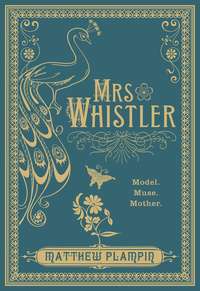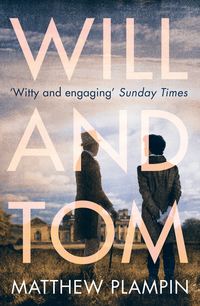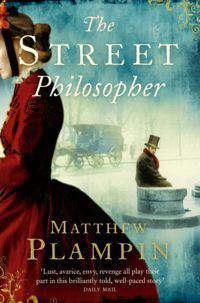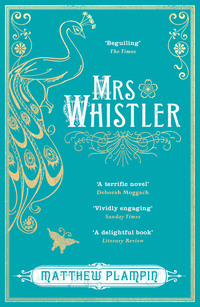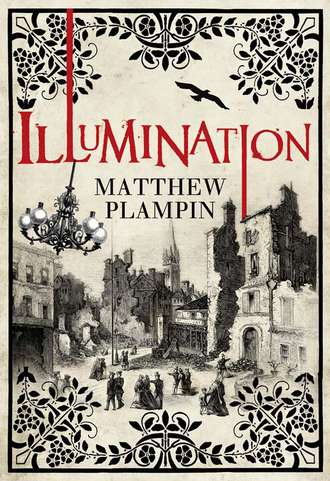
Полная версия
Illumination
‘My dear Mrs Pardy,’ Inglis said, ‘I am so very sorry. Your poor daughter has obviously gone mad. The seedier side of Paris has corrupted her completely.’
Elizabeth had been making an initial survey of the paintings; now she turned on Inglis, dropping all pretence of amity. She would never permit anyone to criticise her children. That right was hers alone.
‘This blinkered response does not surprise me, Mont. How could someone like you possibly appreciate such boldness and originality?’
Inglis appeared unconcerned by this shift in her attitude. He was well used to hostility, Clem perceived – welcoming it, even, as a sign of the merciless veracity of his observations. ‘What is so original, pray, about painting like a drunk with a broom?’
‘This is the real world, not the finely finished fakery of your beloved Empire, with its voluptuous come-hither nudes and slave-market scenes. This is art swept into the present.’ Elizabeth looked over at her son, inviting him to rally to his sister’s defence. ‘Don’t you agree, Clement?’
Clem’s interest in painting was pretty casual, and inclined towards its technical aspects. The only time he’d become truly enthusiastic had been a few years previously when he’d developed a fascination with the actual manufacture of the paint – how the stuff was mixed and squeezed into those metal tubes. He’d even taken a couple of cautious steps towards setting up his own factory, an artisanal operation catering only to the first rank of painters, but the finances had quickly become impossible and he’d been forced to abandon it.
‘They’re very fresh,’ he said.
Elizabeth liked this. ‘Aren’t they? Why, the effect is like a spring breeze – a ray of living sunshine.’ She paused significantly. ‘Pass my notebook, would you?’
Inglis was clearly the sort who picked his battles carefully; sensing a disadvantage, he produced a cigar and pointed to the door. ‘I think I’ll wait outside, Mrs P – all this churning paint is making me nauseous. I’ll be ready when you wish to resume the search.’
Clem handed the notebook to his mother. She started writing straight away, angling the page towards the lamp. ‘I mean they’re recent,’ he enlarged. ‘Not wholly dry. Some are less than a week old, I’d say.’
The room was clean and as orderly as an office. Sketches were stored away in folders, brushes and palette knives in jars, paint tubes heaped in a large cardboard box. A bookcase held a select library – works on art mostly, but also histories and a couple of slim volumes that looked like political tracts. There was no trace either of the corruption Inglis had mentioned or the miserable poverty described in the letter. Off to the side was a Japanese screen printed with a pattern of swooping swallows; behind it Clem could see a mattress, the corner of a battered chest and two winter coats, one black and the other blue, hanging from a nail in the wall. The black one, he realised, was made for a man.
‘Elizabeth,’ he said, ‘I don’t believe that Han is the only person living here.’
His mother followed his gaze. Such a discovery would have left any normal parent mortified, furious, raving about scandal and disgrace. Elizabeth, however, merely blinked; then she turned to study the paintings again.
‘This is how artists are,’ she said. ‘It has always been thus, in Paris especially. Perhaps this friend is the reason she has moved out here, to Montmartre – although of course such a contrary step is typical of her.’
Their eyes met. For all Elizabeth’s offhand tolerance, the same questions were occurring to them both. Was it this other resident, this man, who had written to them? Or was he the true source of danger?
Elizabeth resumed her grilling of Madame Lantier, rather more intently than before; Clem, meanwhile, walked further into the outbuilding, hunting for clues. Several unfinished works were propped away in a corner. Two were portraits: a young woman dressing, and a man sitting beside a window. The style was strikingly intimate and informal. The woman was perched on a wicker chair, a satin ballgown hitched up to her knees. She had an angular, impish face that hinted at an appetite for pleasure of all kinds; her tongue poked out between her lips as she reached for a stocking that lay crumpled on the floorboards. The skin of her bare shoulders had been painted in broad, butter-like strokes, the different tones left unblended beside one another. Just two shades of orange had been used to render her short coppery hair, and the bunched fabric of her gown was but a mesh of purple-pink diagonals.
The portrait of the man had a more considered effect. Clean-shaven and gravely handsome, he was sitting forward on a bench, his thick black hair brushed back from his brow. His coat was black as well, and his gloves; this austere figure, equal parts preacher, lawyer and soldier, had been set against a stretch of plain cream wallpaper, a contrast that fixed the eye upon him completely. In his hand was a slim green tome that Clem recognised as one of the political volumes from his sister’s bookshelf. He was looking out at the viewer, his expression resolute but also reassuring, caring even, as if he was alone with a close comrade-in-arms.
Clem crouched to examine the picture further. Something he had taken to be a flaw, a crack in the paint, was no such thing. A dark scar ran down the left side of the sitter’s face, running like a tear-track from his eye socket to the line of his jaw.
Over by the door, Elizabeth’s voice was growing louder and more impatient. Clem stood up, thinking to go to Madame Lantier’s aid, when he noticed a black strip on one of the other paintings in that corner, behind the two portraits. He pulled it out. Little more than a sketch, largely uncoloured, it depicted what looked like the inside of a small common theatre. An audience had gathered in the murky atmosphere, faces and hats and jackets blurring into an indistinct mass. Before them was an imposing, black-coated orator – the man from the portrait. He’d struck a simple pose, chin raised and right arm extended; his glove was a black V in the middle of the canvas, rendered with a single mark of the brush. Someone, Hannah it looked like, had scrawled a date along the bottom: 12th Septembre, 1870.
Clem held it up for his mother and the landlady to see. ‘Madame,’ he called, ‘où est ça, s’il vous plaît?’
The landlady told them that it was the Café-Concert Danton, a place of indifferent reputation only a few streets away. She pointed to another café scene, saying that it showed the Danton also; and another, over on the far side of the room.
‘We should go there,’ Clem said. ‘Han’s clearly a regular. If we don’t find her we can come straight back.’
Elizabeth agreed. Madame Lantier provided directions and they left the shed at once. Inglis claimed to have heard of the Danton; he slowed his pace, though, dropping to the rear. His usefulness had expired, they all knew it, but he plainly had no desire to return to his lonely table in the lobby of the Grand. Clem suspected that they were stuck with him until they departed the city.
Once on the busier lanes they soon began to attract attention. Clem and Elizabeth’s travelling clothes, although hardly ostentatious, were enough to draw unfriendly stares from nearly everyone they passed. Insults were hissed, the word bourgeois spat out as if it was the worst curse imaginable; children trailed behind them, sniggering and asking rude-sounding questions. Inglis wasn’t nearly as comfortable in Montmartre as he’d implied. His proletarian disguise, with its various quality touches, was largely ineffective; Clem saw him remove the diamond tiepin and secure it inside his jacket.
Madame Lantier’s directions brought them to the place Saint-Pierre, the square at the heart of the district, and on past the derelict merry-go-round in its centre. The northern side of the place had been left empty of buildings, a chain of gas lamps tracing a path up the last stretch of the hill to the signalling tower at its summit. An electric searchlight was trained on this structure; as Clem watched, a soldier stepped into its white beam, waved a series of semaphore flags and then withdrew into the darkness.
The Danton lay to the east, on the rue Saint-André. It was mean and rather dingy – nothing much to look at. Clem felt the deadening cramp of nerves, his breath catching in his throat. He hadn’t seen Hannah for more than two years now, but that wasn’t the reason for his unease. It was more like an intimation of doom – a profound sense that things weren’t going to go as planned. This bothered him. He really wasn’t the sort for such hand-wringing; indeed, he tended not to have the slightest inkling of doom’s approach until he was sunk in it up to his neck. Nothing could be done, at any rate. Elizabeth was steaming past the gaudy street women sitting around the pavement tables and in through the doors. There was no time to reconsider.
Conditions inside were very close to the undignified crush represented in the paintings. The theatre itself was shut, the customers restricted to the narrow bar. A large proportion were National Guard, red flags and all; the rest were clerks, shop assistants, off-duty waiters and waitresses, with a scattering of trollops and pickpockets. Everyone was laughing, singing, arguing at the tops of their voices. Elizabeth jabbed a finger towards one end of the room and then started in the opposite direction, worming between the swaying guardsmen.
Clem pushed on along the bar as politely as he could manage. His ribs, still aching from the Gare du Nord, were barged anew; sour, boozy breath washed over his face as unpleasant comments were muttered; tobacco ash was flicked on his coat and wine splashed on his shoes. Ten minutes passed and he saw no one who looked remotely like an artist, or even like they might know an artist. He’d almost finished his search when a fight broke out nearby among a group of shrieking laundresses, forcing him against the marble bar-top. There was a mirror behind the rows of bottles: Clem contemplated himself as the brawling women were bundled into the street. How bloody wrong I am here, he thought, in my brown flannel and my squat English hat – wearing trimmed whiskers in this land of beards and drooping moustaches. He closed his eyes, sorely tempted to marshal his French and order a large brandy.
Upon opening them he saw someone familiar in the mirror, past his shoulder – a young woman. The image was itself a reflection, he realised, caught in a glass door panel and made especially sharp by the darkness outside. An arm nudged against this panel; it moved very slightly and the woman disappeared. He glanced around, judging the angles. By his estimation she was in a small area beyond the end of the bar. He worked his way towards it.
The woman from the painting was sitting at the edge of a candlelit booth, watching the barroom with an air of total boredom as a cigarette burned between her velvet-gloved fingers. She was almost as alien to the Danton as Clem – a more natural inhabitant of flash dancing halls than the drinking dens of Montmartre. Her dress was dark blue, extremely tight above the skirts and cut low to put as much of her pale flesh on show as possible. The copper hair, longer than in the portrait, was gathered up and adorned with black ribbon and lace. Her legs were crossed carelessly, revealing patent leather ankle boots and a few inches of silk stocking. She noticed Clem, acknowledging him with a beat of her turquoise eyelids. There was sly recognition in her smile. She beckoned for him to approach.
Hannah was in the rear of the booth, engaged in a lively conversation. It was an uncanny moment – gratifying and mystifying in equal measure. Her silver-blonde hair was tied beneath a length of red muslin. She was thinner than Clem remembered, but in a way that suggested vitality and energy rather than privation. And how like them she was! He’d never paid it much mind before, but there in that booth he saw his mother’s oval face and clever grey eyes; the gentle point to the chin that he’d never cared for on himself, but on Hannah was nothing short of beautiful. There was his sister, his twin, for many years his closest friend. He’d found her.
This relief was tempered with disquiet. She was surrounded by men, all of them wearing simple, faded clothes. They looked more like a band of revolutionaries than artists. Han had never been one for gangs, being an impatient, solitary type; yet here she was holding court, telling these moustachioed fellows what was what in French that sounded even better than Elizabeth’s. She didn’t need rescuing, by Clem or anyone else. The letter was a lie. His sister was neither friendless nor destitute; she wouldn’t be leaving Paris, no matter what danger the city might be in. They’d been misled.
The copper-haired woman reached out to Hannah, attracting her attention and jerking a thumb towards Clem. His sister’s astonishment seemed to smack against her, knocking her back in her seat.
‘Dear God!’ she cried. ‘What – what the devil are you doing here?’
The booth went quiet.
‘Well, Han,’ Clem began, ‘with everything that’s going on, it was felt—’
Hannah got to her feet. ‘Please, Clem,’ she said, ‘just tell me she isn’t with you.’
II
Hannah took hold of Clement’s lapel and pulled him away from the booth, into a doorway beside the bar. The material was well worn; it was the same coat he’d been using when she went, and it hadn’t been new then. The fortunes of the Pardy household had plainly not improved. He’d started talking in his old manner, rambling on about how very well she looked and how much this place seemed to suit her; hearing and speaking English again after so long felt strange, a little wrong, like walking in someone else’s boots.
‘Shut up, Clem,’ she said, ‘for pity’s sake.’
She considered him for a second: a guileless boy still, largely unchanged by the two years that had passed. His face, freckled by another idle summer, lacked the pinched quality Hannah had grown used to in Montmartre. Poor he might be, but he had food; he had a good bed and an easy mind. A flicker of contempt gave way immediately to guilt. Clement had been her sole regret when she’d fled from London. She’d abandoned her brother to Elizabeth. This could not be ducked or denied. He had every right to resent her – to demand that she explain herself and listen to the suffering he’d endured in her absence – but he was grinning, saying how pleased he was that they’d been reunited, whatever the circumstances. She released his coat.
‘Is she here with you? Answer me.’
Clem’s grin fell. He scratched at his blond whiskers and glanced along the bar. ‘Over there somewhere, I’m afraid. Her blood’s up something awful, Han. You’d better get ready.’
Hannah was glad of the anger that gripped her; it at least dictated a clear course of action. ‘Why have you come? Why now?’
A letter was produced from his coat pocket, written in an official-looking hand. She read it with gathering dismay.
‘But this is quite untrue. It’s nonsense.’
‘Who could’ve sent it, do you reckon?’
Hannah thought hard. This letter was obviously intended to humiliate. The arrival of her family from London at this pivotal time would make her seem like a hopeless ingénue – no different from the hundreds of hare-brained English girls who ran away to Paris every year, only to be retrieved by their relatives. It labelled her a tourist, an outsider, someone not to be taken seriously. The list of suspects was long. She’d learned that camaraderie between artists was a fragile thing, in constant danger of tipping into rivalry. They might share a philosophy of painting, but each one of these professed comrades, in some private chamber of his heart, desired the ruination of the rest. There were others as well; impatient creditors, a handful of rebuffed suitors, and the likes of Laure Fleurot, who’d pointed Clement in her direction with such malevolent delight. Any of them could be responsible.
Ingenuity had been required, of course, both to discover the St John’s Wood address and compose a letter in English. Nobody of Hannah’s acquaintance had ever admitted familiarity with her mother tongue. Translators and draughtsmen could be found throughout the city, though; and besides, who could say what knowledge people chose to keep hidden?
‘I’ve no idea,’ she said.
‘Things are getting bad here though, aren’t they? It’s like the city has been given over entirely to soldiers. I’ve heard that there’s to be a siege, Han – a bloody siege.’
Clem’s experience of Paris had plainly unnerved him. Her brother led a sheltered life, seldom straying from long-established paths; he was singularly ill-equipped to cope with the upheaval that had come to define the city. The past few months had seen wild jubilation at the outbreak of war, the misery of subsequent defeat and then a bloodless revolution, swift and uproarious, unseating an empire in a single day. And now, almost impossibly, events were escalating yet further. The end of Napoleon III had not brought the end of the war he’d started. The Prussians were coming for Paris – set on razing her to the ground, it was rumoured, and then remaking her in their own forbidding image.
Hannah shook her head, remembering Jean-Jacques’s words. ‘These invaders do not see what Paris is,’ she said. ‘They think we’ve been cowed by the fall of the Empire and the destruction of the Imperial armies, but the opposite is true. Our city has been liberated.’
‘Our city? Quite the loyal Parisian these days, Han, ain’t you?’ Clem’s laugh was tense. ‘I mean to say, that’s all well and good, but these Prussian blighters are approaching in their hundreds of thousands. They have guns like you wouldn’t believe. I read in The Times that at the battle of Sedan they—’
Hannah wasn’t listening. She looked at the letter – at her address on the rue Garreau. ‘How did you find me? Here in the Danton, I mean?’
Clem stopped; he grinned again, pride in his detective powers displacing his apprehension. ‘Why, from your paintings. This fine establishment features in a good few of them. I asked your landlady about it and she was kind enough to provide directions. Then I recognised that girl, the one in blue, from your portrait of her. Simple stuff, really.’
‘You went into my home? What were you thinking, Clem?’
He became defensive. ‘We were worried, Han. We thought you might be poorly, or starving, or—’
A murmur of excitement spread through the Danton, rippling out from the doors to its furthest corners. Many turned to stare; Hannah overheard a nearby labourer say ‘l’Alsatian’ to his companions. Jean-Jacques had arrived. Two inches taller than the next tallest man, black hat still on his head, he was moving slowly towards the bar, shaking hands and giving nods of acknowledgement. A squad of National Guard pulled him among them, hailing him as a brother as they poured him a glass from their wine jug.
‘I say,’ Clem remarked, craning his neck, ‘isn’t that the black-suited fellow from your paintings – the orator? Is he going to speak?’
Hannah didn’t answer. Exactly how much had her brother deduced? She tried to remember what had been left in the shed – and suddenly realised that if Clem could recognise Jean-Jacques, Elizabeth might be able to as well. A situation too awful ever to be anticipated was unfolding around her. She stepped from the doorway, hurriedly plotting the best path through the crowd whilst trying to think of an excuse that would get Jean-Jacques back outside.
‘What news, Alsatian?’ someone shouted. ‘Where are the pigs now?’
Jean-Jacques addressed the room. His voice, accented slightly by his home province, was not loud, but it blew away the bar’s chatter like a March wind. ‘The latest sightings are of Crown Prince Frederick, crossing the Seine to the south. The Orléans line has certainly been severed.’ The Danton let out a groan. ‘Do not lose heart, friends, it is but a minor loss. The Prussians will be driven back across the Rhine before a single week has passed. We will beat them.’
Those around him managed an embattled cheer, the National Guard raising their glasses to the coming victory; and between the uniformed arms was Elizabeth Pardy, poised to introduce herself to this noteworthy gentleman and ask him about her daughter. Like Clement, she seemed eerily the same – a figure from Hannah’s past transposed awkwardly onto the present. Her hair was tucked up beneath a fawn travelling hat; her expression amiable yet glassy, concealing a deeper purpose. And now Jean-Jacques was turning towards her, listening as she leaned in to speak.
The next Hannah knew she was before them, quite breathless, grasping his left hand in both of hers. There were exclamations of surprise. Elizabeth planted a kiss on Hannah’s cheek; her face was cold and heavily powdered, and the most extravagant praise, in French, was pouring from her lips. It took Hannah a moment to understand that the subject of this laudation was her paintings. She’d expected some overwhelming line, delivered with chilly calmness – a statement of disappointment and distress, perhaps, intended to floor her with shame. She hesitated, completely wrong-footed.
‘Wonderful,’ Elizabeth was saying. ‘Extraordinary, beyond anything I had hoped for. I see what you are doing, Hannah, I see it so clearly. It is close to genius. You are on the verge of something great, my girl. I predict a—’
Hannah recovered her wits. She cut her mother short. ‘You’ve made a mistake,’ she said, in English. ‘That letter is false. I don’t need your help, Elizabeth. Go back to London. Go before it’s too late.’
The alleyway smelled of pears and neat alcohol. It led downhill, away from the rue Saint-André; a stream of inky liquid was crawling through a central gutter. This was Hannah’s short-cut to the rue Garreau, skirting the place Saint-Pierre to the south. She’d covered a dozen yards before she realised that home was useless. Elizabeth knew where she lived. She’d been to the shed and seen what was inside. She could return there at any time.
Hannah stopped beneath a lamp set in a rusted wall bracket. She’d released Jean-Jacques as soon as they’d left the Danton, running off to the right and into her alley. He’d followed, keeping up easily; he was only a couple of yards behind her now. She crossed her arms and glowered at him. His instinct for people was strong; he should have seen through Elizabeth at once, yet they’d been talking quite happily when Hannah had snatched him back. It felt almost as if he’d been an accessory to her mother’s ambush – to that contemptible attempt to disarm her with flattery. He was watching her, waiting for her to speak. Their abrupt exit from the Danton hadn’t perturbed him. Jean-Jacques Allix was a man beyond alarm. Throughout the summer, as France had been shaken to the brink of collapse, Hannah had found this absolute steadiness reassuring. Right then it made her want to knock off his hat.
‘What did she say, Jean-Jacques? What was under discussion?’
He was quiet for a few more seconds. ‘Only you, Hannah,’ he said. ‘Only you.’
His voice was tender; Hannah remembered the day she’d just passed, sitting at her easel on the place de l’Europe with her brushes in her lap, longing for the moment when they would be together again. But she steeled herself. She would not be lulled.
‘I can’t believe she’s here in Montmartre. I can’t believe it.’
‘She told me that she’d come to ensure that you were safe. A mission of mercy.’
‘Elizabeth came to fetch me,’ Hannah snapped, ‘to reclaim her wayward child and return her to London.’ She covered her brow. ‘I fled my family, Jean-Jacques. I climbed from my bedroom window in the dead of night and travelled alone to Paris. There it is. That’s what I am. A runaway.’
Jean-Jacques nodded; up until now, Hannah had let him infer that she was an orphan, without any surviving relatives in England, but he didn’t seem surprised or affronted by the truth. ‘We all must adapt ourselves,’ he said. ‘It is part of life. The timing of this visit is strange, though. Surely any person of sense can see that there’s a good chance of becoming trapped – that our foe is nearly upon us?’


